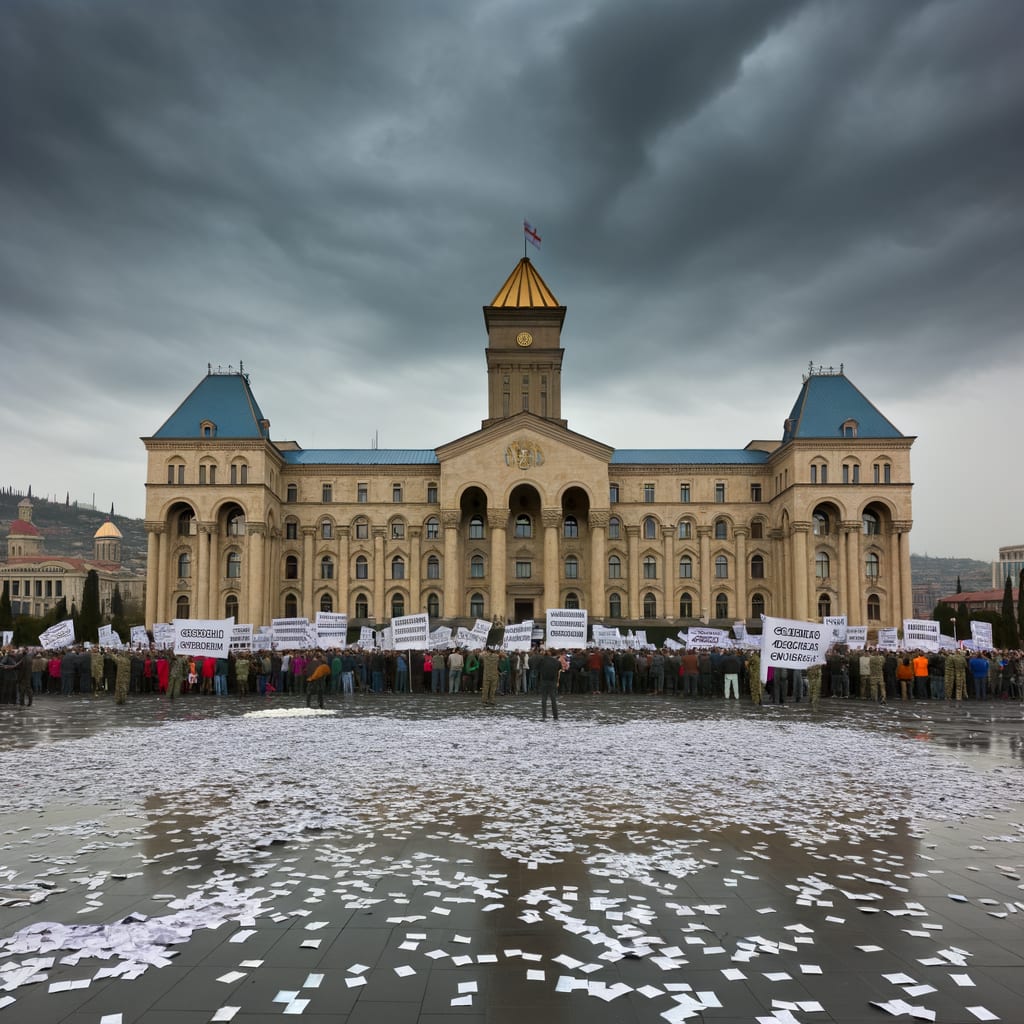Unrest in Tbilisi: Protests Erupt Amid Municipal Elections, Attempt to Storm Presidential Palace
Tensions soared in Georgia on the day of municipal elections as anti-government protesters attempted to storm the presidential palace in central Tbilisi. The police intervened using tear gas and water cannons to disperse the crowd, according to multiple sources. The demonstrations, prompted by the disputed results of the local elections, quickly escalated into clashes with police.
Background and Context
Georgia has been in the throes of a political crisis since the legislative elections of 2024, reported Le Monde. The local elections, held on Saturday, were declared largely in favor of the ruling party, Dream of Georgia, based on preliminary results. However, the results were disputed by several opposition parties, leading to widespread protests. The protesters' main grievances included the Georgian government's pro-Russian stance and alleged vote rigging, according to the Kyiv Independent.
Key Developments
According to various reports from Ukrinform and the BBC, several dozen protesters managed to break into the courtyard of the presidential palace on Atoneli Street. These attempts to breach the palace fences led Georgia's Interior Ministry to declare the demonstration illegal and order the crowd dispersed. The Georgian police's response was to employ pepper spray and water cannons.
Kakha Kaladze, the ruling party’s secretary general, went so far as to label the unrest in Tbilisi as an attempted coup, reported by TASS. On the other hand, Georgia's prime minister claimed that the protesters who stormed the presidential palace aimed to overthrow the government, according to Al Jazeera English.
Reactions and Implications
While the government maintains that the demonstration was an attempt to destabilize the country, the protesters argue that their actions were in response to a flawed electoral process that favored the ruling party.
The international community has been closely monitoring the situation. Images of the demonstrations and the subsequent police action have been widely circulated, highlighting the escalating tensions in the country.
The Current Status
The situation in Tbilisi remains volatile. The government's response to the protests and the allegations of vote rigging have only further fueled the ongoing political crisis. As of now, the authorities have managed to contain the protesters, but the underlying issues driving these demonstrations remain unaddressed.
In conclusion, the municipal elections in Georgia have not only highlighted the deep political divisions in the country but also led to a marked escalation in civil unrest. The government's handling of the protests and the allegations of electoral fraud will likely shape the political landscape in Georgia in the coming months.

